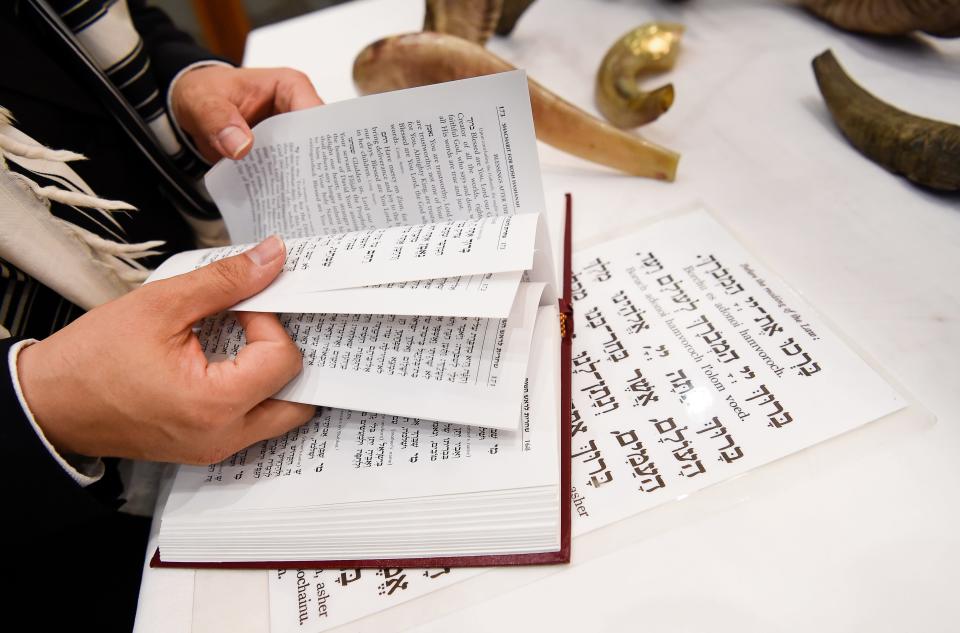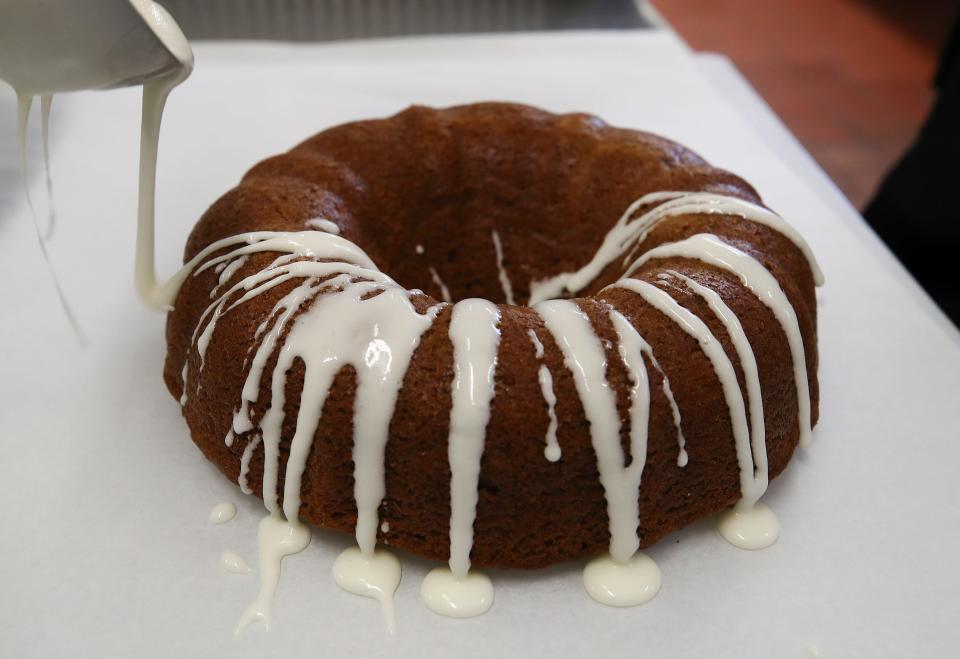Rosh Hashanah 2023: What to know about Judaism's holiest day
Rosh Hashanah is Judaism's holiest day.
Meaning “head of the year” or “first of the year,” Rosh Hashanah -- the Jewish new year -- marks the creation of the world. It also marks the beginning of the Jewish High Holy Days leading up to Yom Kippur, the Jewish day of atonement.
Rosh Hashanah is translated from Hebrew to mean the “head” of the year. It’s commemorated with special prayers, foods, gatherings and more.
What to know about Rosh Hashanah: One of the most significant Jewish holidays is here
"These are moments where we come together as a community, where we take time to think about ourselves as individuals, but also think about the ways that we can help others," Rabbi Rob Gleisser, the Peter J. Rubinstein reform senior Jewish educator at Penn State Hillel, told USA TODAY. "Think about the ways that we want to create a safe community, a welcoming community, a warm community and then be able to enrich the world around us after having those moments of introspection."
Here's what you need to know about Rosh Hashanah:
When is Rosh Hashanah 2023?
Rosh Hashanah will begin at sunset on Friday, Sept. 15, 2023 and continue through sundown on Sunday, Sept. 17.

The exact date varies every year since it is based on the Hebrew calendar, where Rosh Hashanah begins on the first day of the seventh month. It is almost always in September or October.
The celebration of the new year is the only Jewish holiday that is two days long both inside and outside Israel. It’s called yoma arichta, translated as “a long day” because the 48-hour celebration may be thought of as one extended day.
Why is Rosh Hashanah celebrated?
Rosh Hashanah is often treated as a time to reflect on the previous year and focus on hopes for the coming year, according to Jordan Rosenblum, the Belzer Professor of Classical Judaism and Max and Frieda Weinstein-Bascom Professor of Jewish Studies at the University of Wisconsin-Madison.
“It's the beginning of the Jewish calendar, and like all new years there are, it’s a time for sort of taking stock, right? ...
What do I want to improve? You know, the equivalent of joining the gym in January,” he said.
Rosh Hashanah is also important for some Jewish people as a celebration of the creation of humanity. It may be referred to as the "birthday of the world," marking the time when God created – or when the breath of life entered – Adam and Eve.
How is Rosh Hashanah celebrated?
Many Jewish people will attend services at synagogues and other spaces for worship on Rosh Hashanah. Jewish congregations will recite special prayers and songs to mark the new year.
Some Jewish communities will blow a Shofar, a curved ram’s horn.
“It’s meant to kind of stir you, awaken you to the idea of thinking of new year, taking stock, preparing to atone, and in the month leading up to Rosh Hashanah it begins to be used as a kind of wake up,” Rosenblum said. “It really kind of pierces the air, and you can't ignore it.”
Some Jews may also pray near a body of water in a Tashlich ceremony, in addition to tossing pieces of bread or other food into the water to symbolize sending off sins.
Apples and honey on Rosh Hashanah? Traditional foods for the holiday
What are some traditional Rosh Hashana foods?
Rosh Hashanah celebrations don’t just take place within the walls of a synagogue. Many Jews will gather with friends and family to eat special foods and hold commemorations:

Some Jewish people eat apples and honey together to represent a sweet new year.
People may also eat challah, a braided bread, in a round loaf to represent a cycle of the year.
Pomegranate seeds also represent the 613 mitzvot, or commandments, that are cited in the Torah, the Jewish holy book.
"For Rosh Hashanah, in particular, there's just a lot of emphasis on sweetness so that you are stepping into the year with good tastes and good feelings, and with this idea that you want to have a sweet and bountiful year ahead," Rabbi Danielle Leshaw, senior educator and campus support director for Hillel International, told USA TODAY.
What do you say on Rosh Hashanah?
Happy Rosh Hashanah or happy new year are both appropriate greetings if you are talking to Jewish friends, family, co-workers, or classmates around the holiday. You can also say shanah tovah, which means good year in Hebrew.
"Happy New Year is great," Gleisser said. "Happy Rosh Hashanah, that’s a beautiful thing to say."
This article originally appeared on Akron Beacon Journal: Rosh Hashanah 2023: What to know about Judaism's holiest day

